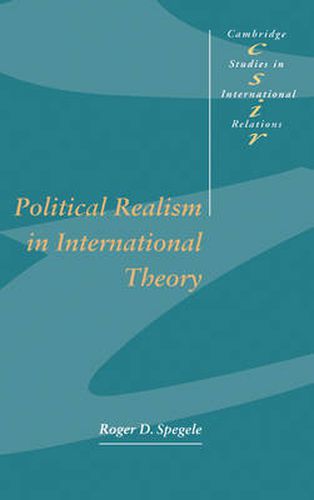Readings Newsletter
Become a Readings Member to make your shopping experience even easier.
Sign in or sign up for free!
You’re not far away from qualifying for FREE standard shipping within Australia
You’ve qualified for FREE standard shipping within Australia
The cart is loading…






In this book Roger Spegele argues that in the past international theorists have failed to recognise that there is not one conception of international relations, subdivided into different theories and approaches, but at least three wholly different conceptions of the subject. Though scholars are increasingly prepared to accept this, there is still no consensus about what to call these conceptions, how to describe them, and why they should be studied. This book attempts to fill this gap. The author first examines two conceptions of IR - positivism-empiricism and emancipatory international relations - which challenge political realism. He then defends a revised version of realism, called ‘evaluative political realism’, from challenges arising from its rivals, with the aim of defining a conception of political realism which is coherent, viable, and attractive.
$9.00 standard shipping within Australia
FREE standard shipping within Australia for orders over $100.00
Express & International shipping calculated at checkout
In this book Roger Spegele argues that in the past international theorists have failed to recognise that there is not one conception of international relations, subdivided into different theories and approaches, but at least three wholly different conceptions of the subject. Though scholars are increasingly prepared to accept this, there is still no consensus about what to call these conceptions, how to describe them, and why they should be studied. This book attempts to fill this gap. The author first examines two conceptions of IR - positivism-empiricism and emancipatory international relations - which challenge political realism. He then defends a revised version of realism, called ‘evaluative political realism’, from challenges arising from its rivals, with the aim of defining a conception of political realism which is coherent, viable, and attractive.